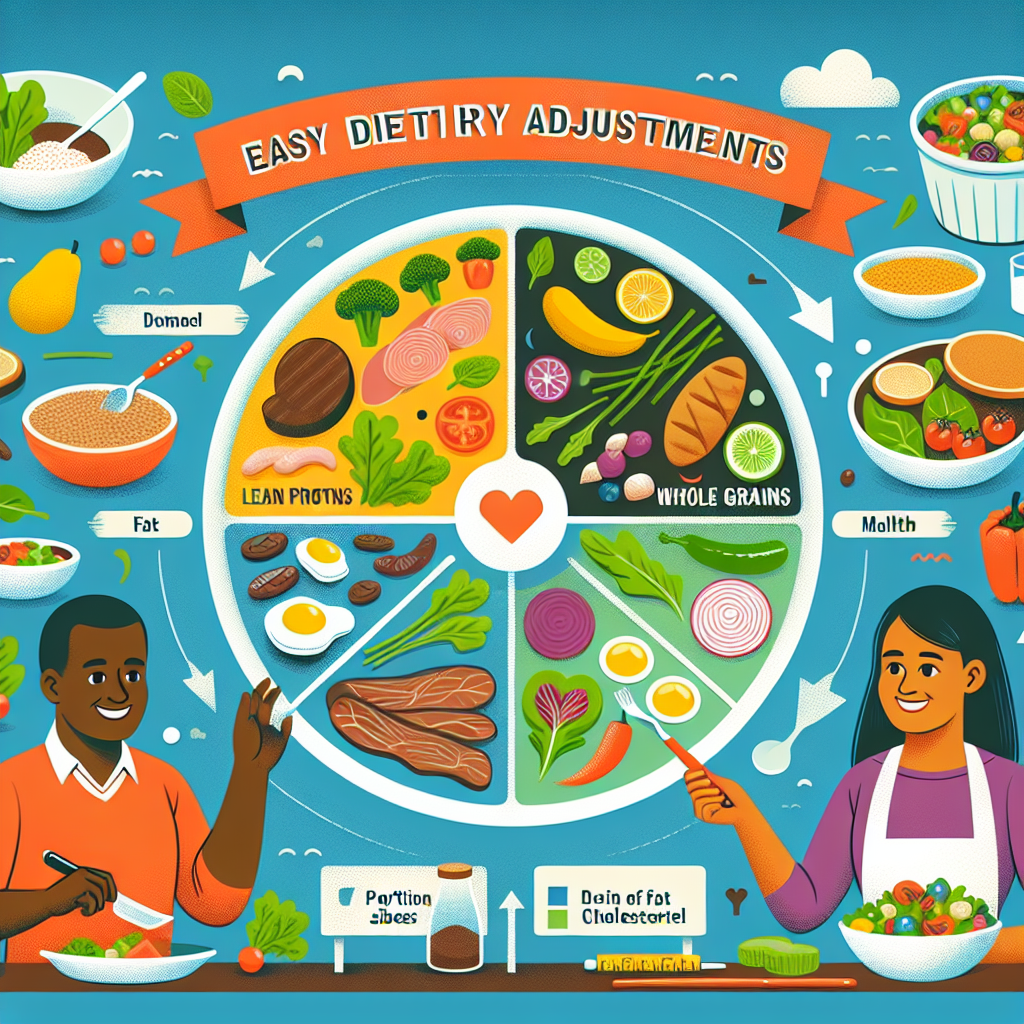Diabetes is a chronic condition that affects millions of people worldwide. It is characterized by high blood sugar levels, which can lead to various complications if not properly managed. While medication and regular exercise play a crucial role in diabetes management, dietary adjustments are equally important. Making simple changes to your diet can have a significant impact on your blood sugar levels and overall health. In this article, we will explore some easy dietary adjustments that can help in the management of diabetes.
Related Topics (Sponsored Ads):
1. Choose Complex Carbohydrates
Carbohydrates have the most significant impact on blood sugar levels. However, not all carbohydrates are created equal. Simple carbohydrates, such as white bread, white rice, and sugary snacks, are quickly digested and cause a rapid rise in blood sugar levels. On the other hand, complex carbohydrates, such as whole grains, legumes, and vegetables, are digested more slowly, resulting in a gradual increase in blood sugar levels.
By choosing complex carbohydrates over simple ones, you can better control your blood sugar levels. For example, replace white bread with whole wheat bread, white rice with brown rice, and sugary snacks with fruits or nuts.
2. Increase Fiber Intake
Fiber is an essential nutrient for diabetes management. It helps slow down the absorption of sugar, preventing spikes in blood sugar levels. Additionally, fiber promotes a feeling of fullness, which can aid in weight management.
Incorporate more high-fiber foods into your diet, such as whole grains, fruits, vegetables, and legumes. Aim for at least 25-30 grams of fiber per day. You can also consider taking fiber supplements if necessary.
3. Control Portion Sizes
Controlling portion sizes is crucial for managing diabetes. Even healthy foods can raise blood sugar levels if consumed in large quantities. By monitoring your portion sizes, you can better regulate your carbohydrate intake and maintain stable blood sugar levels.
Use measuring cups or a food scale to ensure you are eating appropriate portion sizes. Additionally, try using smaller plates and bowls to create the illusion of a fuller plate.
4. Limit Added Sugars
Added sugars can quickly raise blood sugar levels and contribute to weight gain. It is important to limit your intake of sugary beverages, desserts, and processed foods that are high in added sugars.
Read food labels carefully and look for hidden sources of added sugars, such as corn syrup, fructose, and sucrose. Opt for natural sweeteners like stevia or use spices like cinnamon to add flavor to your meals without adding extra sugar.
5. Choose Healthy Fats
Fats are an essential part of a balanced diet, but not all fats are created equal. Saturated and trans fats can increase the risk of heart disease and worsen insulin resistance. On the other hand, unsaturated fats, such as those found in avocados, nuts, and olive oil, have been shown to improve insulin sensitivity.
Replace saturated fats with healthier options. For example, use olive oil instead of butter, snack on nuts instead of chips, and include fatty fish like salmon in your diet.
Summary
Managing diabetes requires a holistic approach, and dietary adjustments play a crucial role in maintaining stable blood sugar levels. By choosing complex carbohydrates, increasing fiber intake, controlling portion sizes, limiting added sugars, and choosing healthy fats, individuals with diabetes can better manage their condition and improve their overall health.
Related Topics (Sponsored Ads):



